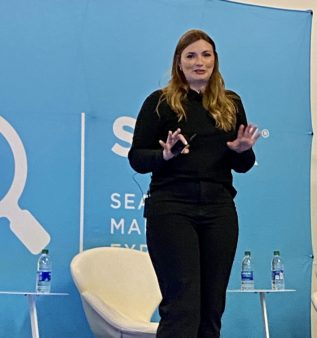
In this time of uncertainty caused by the COVID-19 outbreak, we’re in reactive mode. Whether your company is having trouble keeping up skyrocketing demand or experiencing a rapid decline in leads and activity, businesses are confronting an unplanned “seasonal” event.
These days can seem very long, but when this eventually passes, those businesses that started planning for “normal” seasonality will be positioned to come out stronger. Last month at SMX West, Metric Theory’s Genevieve Head-Gordon discussed paid search strategies for preparing and optimizing for peak seasons that can help you be ready.
Preparing for peak periods
“Gone are the days of just maximizing your peak period,” said Head-Gordon. “There is so much you need to be doing in your off-peak periods to make sure that you understand your target audience and the state of your account leading up to your peak season.”
Assess your historical performance, your customer profiles and changing search behaviors. Expand your keywords to include seasonal-related queries. Head-Gordon also suggests using Auto campaigns on Amazon (if you sell on the platform) to identify how customer search habits change, using keywords specific to certain holidays or time periods.
Know your audiences. Audience building and targeting is going to be critical for seasonal success. Cast your net well ahead of your peak period so you can start bringing users into the funnel and be ready to remarket when the season kicks in. Long-term remarketing lists ensure you can reconnect with prospects who engaged with your brand last season or even last year.
Then segment those lists, says Head-Gordon, into various groups such as recent versus long-term or product-specific interests, etc. Those can then be used to create targeted similar audiences. Also, take advantage of custom intent audiences.
Work out the kinks. Test any new campaign types well in advance of your peak and “work out the kinks of your core SEM components: ad copy and landing pages,” she says.
Invest in window shoppers. Frontload your budgets earlier to get ahead of your competion and “invest in window shoppers,” as Head-Gordon puts it. “You want to make sure that you’re bidding and budgeting early. Get in front of people and fill remarketing lists. If you wait to start prospecting until the beginning of your peak period, you will have missed a valuable window to gain awareness and loyalty.”
On Amazon, in particular, Head-Gordon suggests ramping up your budget two to three weeks before your peak season.
In the moment
Automated bidding. “During your peak season, make sure that you are leaning into automated bidding,” she says.”Machine learning is a huge benefit in a complicated journey. But you can make it smarter using tools and your historical data assessment.”
Be ready to open up your budgets, adjust your optimizer targets for more gradual trends. (If you’re running short-term promotions or expecting unusual short-term spikes, that’s where Google Ads’ seasonality adjustments can be helpful.)
Google Analytics. The platforms record conversions to the day of the ad click, not the day of the conversion. Use Google Analytics to view real-time conversion rates and channel performance for your key dates, she advises. “Google Analytics allows you to maximize your exposure because that data is real-time, so you’re not going to be missing out on really strong conversion rates and really strong performance.”
Budget monitoring. You also want to set up “depleted budget reports,” says Head-Gordon. “These are really helpful because the worst thing that can happen during your peak season is your best performing campaigns run out of budget early.” Set up these types of alerts to maximize exposure and sales or leads during your peak periods as possible.
Channel reporting. Set up hour-by-hour channel reporting for your key days. This will show overall changes in spend in traffic and conversions, said Head-Gordon, “and make sure that you’re setting yourself up for success for next year.”
The post How to optimize paid search and Amazon campaigns for seasonality success appeared first on Search Engine Land.
Source: IAB
